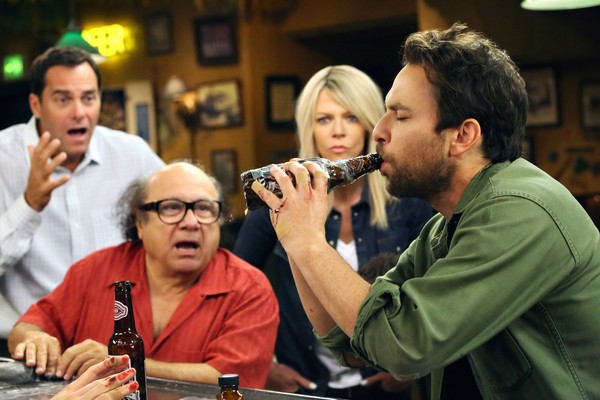
Around the hallways it is common to find some reference to a television show intended for adults you may or may not have seen before, such as references on SGA posters or ads for clubs who reference shows like Game of Thrones or It’s Always Sunny in Philadelphia to appeal to teens walking by.
When it comes to television, most teens have free reign over what they watch. 68 percent of kids in the United States under 18 years old have a television in their bedrooms, with only 13 percent of families reported to set rules about what type of shows kids see.
The rate that an individual matures is strictly personal, and things like rated PG-13 movies and age limits on alcohol and legal adulthood are merely based on human growth milestones, which are relative.
“I don’t think there’s a specific time because people mature at different rates,” senior Rebecca Golden said.
The question lies in what these shows can provide as an insight to the adult world and topics that would not be found in shows with younger age ratings.
“There’s a point in which people transition from childhood to young adulthood, with that transition accompanied by a decrease in impressionability,” junior Bangyen Pham said. “Those who are more impressionable, i.e. children, should be restricted in what they watch; however, those who are less impressionable should be given free reign as to what they watch.”
Until adolescents grow out of their impressionable phase, they are more likely to emulate what they see on television and other media. A study by the American Broadcast Company found that 22 out of 100 juvenile offenders admitted to having learned the techniques they used to commit crimes from watching television.
“Any show that produces dangerous stereotypes or ideas in explicit or violent ways isn’t good to expose to someone who is still growing up and learning to form their own personal beliefs,” junior Sasha Duckworth said. “Dangerous things can come out of telling kids what is ‘adult’ and what isn’t: for example the whole debate over how a lot of people are desensitized to violence while sexuality is treated as this huge taboo.”
Duckworth attests to the improper placement of values in the education and media systems in that media can portray sexuality as something to be afraid of.
“Teaching kids that their sexuality is worse than committing violent acts can lead to self-esteem issues with how they treat other people,” Duckworth said.
Alongside this, shows have the power to bring consideration for social change beyond the issue of bias against minority groups and the LGBT community by introducing moral concepts.
“I actually watch Criminal Minds, which, despite the massive array of, as the title implies, criminals, humanizes others and shows that one should be aware of the fact that people are not inherently bad, but instead are a product of their environment,” Pham said.

